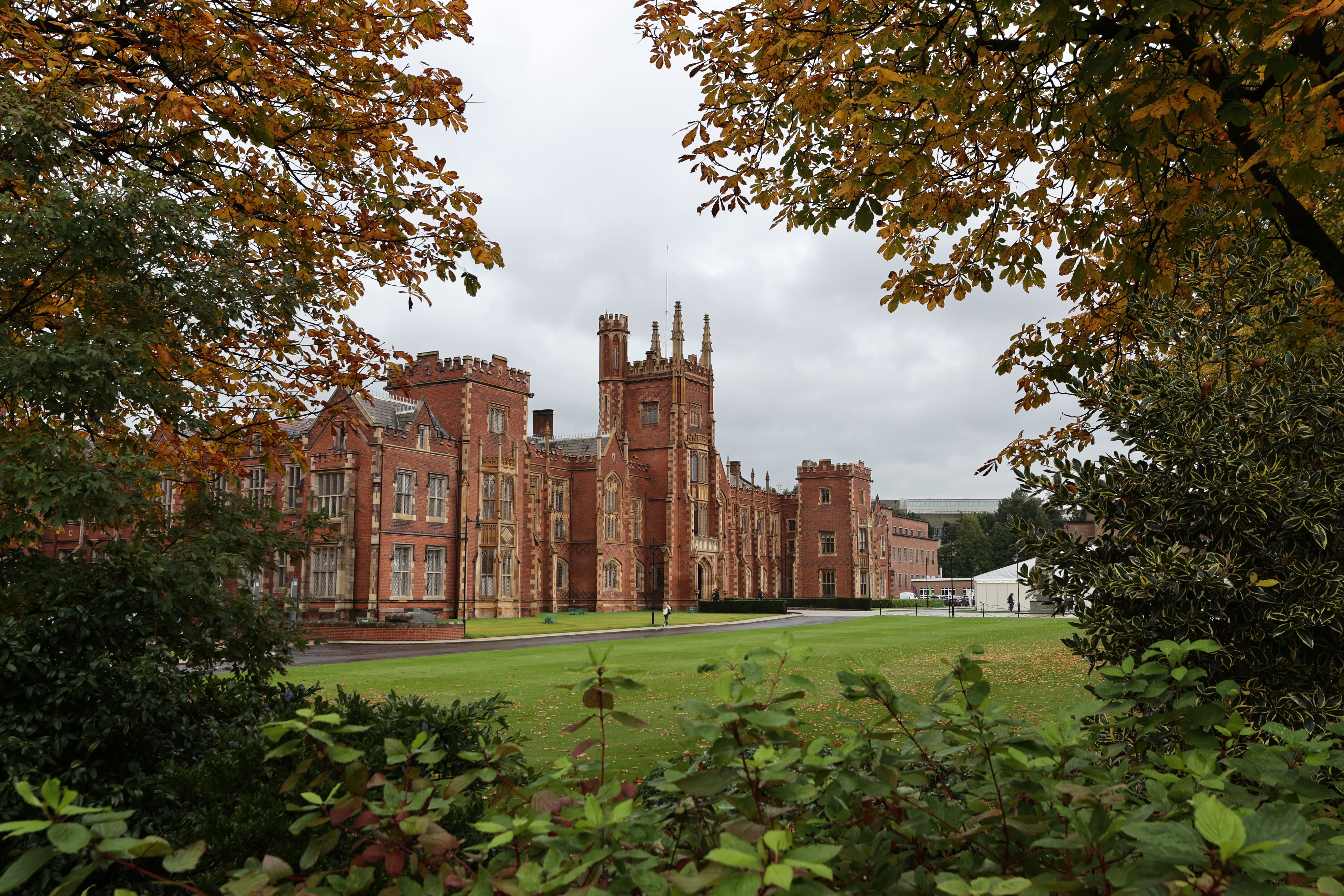Queen’s University statement on Middle East ‘not good enough’ – group
The Palestine Assembly at the university has urged it to ‘take a firm and unequivocal stand against Israeli occupation’.

Your support helps us to tell the story
From reproductive rights to climate change to Big Tech, The Independent is on the ground when the story is developing. Whether it's investigating the financials of Elon Musk's pro-Trump PAC or producing our latest documentary, 'The A Word', which shines a light on the American women fighting for reproductive rights, we know how important it is to parse out the facts from the messaging.
At such a critical moment in US history, we need reporters on the ground. Your donation allows us to keep sending journalists to speak to both sides of the story.
The Independent is trusted by Americans across the entire political spectrum. And unlike many other quality news outlets, we choose not to lock Americans out of our reporting and analysis with paywalls. We believe quality journalism should be available to everyone, paid for by those who can afford it.
Your support makes all the difference.A statement by Queen’s University Belfast on the conflict in the Middle East is “not good enough”, a group has contended.
The university issued a statement after meeting with stakeholders earlier in the week to hear the views of the community.
The Palestine Assembly at Queen’s staged a sit-in on campus at the same time as the meeting on Tuesday, and urged the university to end all ties with universities in Israel, to “condemn Israel’s mass killing of Palestinians and deliberate destruction of Gaza’s educational infrastructure” and offer sanctuary status to Palestinian academics and students.
On Thursday, the university released a lengthy statement.
It outlined a commitment to freedom of expression, the right to hold a range of views and right to protest.
It also pointed out that on March 17, the president and vice-chancellor, Professor Sir Ian Greer, publicly called for an immediate ceasefire in the Palestinian territory of Gaza, and he has repeated that plea.
The university also said it recently announced support for both academics at risk and Palestinian students through fellowship and scholarship programmes, and will “strongly support a programme to restore educational structures in Gaza as soon as this is possible”.
This is to include an offer to establish a partnership with a university in Palestine.
The university went on to say it is committed to “promoting equality of opportunity, good relations and respect for diversity and inclusion on campus”.
The university is opposed to all forms of unlawful discrimination which includes antisemitism and islamophobia and will seek to ensure that all staff and students are treated fairly and with dignity and respect
“We are a hugely diverse community comprising of approximately 25,000 students and staff of many faiths and religious beliefs, representing over 100 different nationalities,” they said.
“In line with our Equality, Diversity and Inclusion Policy, the university is opposed to all forms of unlawful discrimination which includes antisemitism and islamophobia and will seek to ensure that all staff and students are treated fairly and with dignity and respect.
“As stated in our policy, there is a zero tolerance approach to all forms of discrimination, bullying and harassment, particularly where it arises as a result of any protected characteristic.”
Responding, the Palestine Assembly at Queen’s said it welcomed elements of the university’s statement, but it “falls short of what is needed”.
The group referred to a statement made by Trinity College Dublin earlier this week as going further.
“Trinity has agreed, by comparison, to end all relationships with Israeli suppliers and to divest from all Israeli companies as well as those operating in the occupied Palestinian territories,” they said.
In an institution that values learning as an essential element in democratic culture, neutrality cannot be used as cover for equivocating in the face of genocide
“It has created a task force to review ties with all Israeli institutions, including academic and student exchanges, with the intention of ending them.
“The tax-paying public here demands full disclosure of the nature of collaborations with Israel happening on its doorstep – complete transparency, and nothing less, is now required.
“QUB’s Palestine Assembly insists that the university must begin with the question, ‘What are our responsibilities in the face of genocide?’
“We want our vice chancellor and chancellor to clearly condemn the onslaught happening before our eyes, and to take a firm and unequivocal stand against Israeli occupation, which is incompatible with academic freedom.
“In an institution that values learning as an essential element in democratic culture, neutrality cannot be used as cover for equivocating in the face of genocide.
“At the very least, the immense suffering in Gaza demands of academic institutions worldwide complete transparency; unequivocal condemnation of genocide; unwavering solidarity with those experiencing scholasticide.
“Only by doing so can this university place itself on the right side of history.”